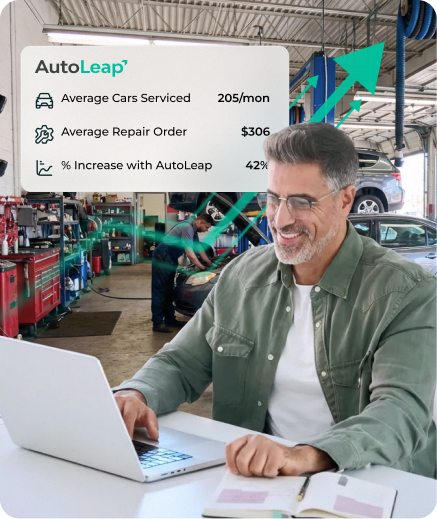Should you agree to install customer supplied parts at your auto shop?
For many small businesses, it can be difficult to say no to a customer since it seems counterproductive to the company’s cash flows. However, the best auto repair shop owners understand the impact of using customer supplied parts to make an informed decision.
Does your auto shop have a policy for dealing with customer supplied parts?
If not, it’s time to implement one. Before accepting a job, many auto repair shops conduct a surface-level analysis of the possible impact of using parts supplied by a customer. AutoLeap, an automotive workshop management company held a webinar to discuss some of the dangers of using customer-supplied parts.
1. Denting your profitability
Most auto repair businesses mark-up the parts that they sell and install to add to their revenue streams. When a vehicle owner supplies their own components, the job becomes less profitable.
A little-known fact about customer supplied parts is that they don’t save the client as much money as they believe.
RPM Training owner, Murray Voth, has over 15 years of experience in the auto repair sector. During his time as an Automotive Shop Management Trainer, Voth has helped hundreds of auto repair shops. He says that neither vehicle owners nor repair shops win when a customer brings in their own parts.
Some shop owners offset the lost profit by raising their labor rates; however, most customers don’t take this too well. Good auto repair shops focus on delivering quality services that offer value to their customers. Value doesn’t mean inexpensive offerings—rather something that people feel like they got a good deal for.
In the following video, Murray Voth recounts the time when he realized how much money he lost by accepting an order involving customer supplied parts:
2. Near misses with liability
Thinking about liabilities can make the best of us shudder. Nobody on this planet likes credit card bills, do they? Before accumulating more liabilities, prudent business owners often consider the following things:
Insurance
When you use customer supplied parts, the likelihood of things going wrong is high. Additionally, it’s not feasible for insurance companies to cover damages that may be caused during these jobs. While there are many types of insurance for auto repair shops, most don’t cover repairs involving customer supplied parts.
Warranty
Unsurprisingly, you can’t offer a warranty on parts you didn’t buy. However, the Consumer Protection Act and protection laws in most US states require shop owners to offer a 90-day part and labor warranty, regardless of who supplied the component.
In such cases, legal attorneys advise shop owners to attain a liability waiver signed by the vehicle owner before conducting repairs. This absolves repair shops of any liability.
3. Managing your business reputation
Seasoned repair shop owners understand that if they go through with projects involving unauthorized parts, things are likely to go wrong. Once that happens, your shop loses credibility, and in turn, customers.
In recent years, many companies have become bankrupt after an unfortunate event marred their reputation. This alone is a good reason to avoid customer supplied parts.
Here are some of the things to consider when presented with a customer supplied part:
The job goes sideways
Do you inspect cars when the customer brings their parts? Incorporating digital vehicle inspections software into your process can help identify the root cause of issues upfront.
Most shops assume the customer knows what they want. However, the customer may have misdiagnosed the problem and brought in totally unrelated parts.
At the end of the day, you do the job, but the customer doesn’t get what they want—everyone goes home unhappy.
Poor quality parts
Most vehicle owners think that OEM components cost more due to the brand name and buy generic parts instead. However, the extra money reflects better quality and performance.
Needless to say, cheap aftermarket parts can increase the risk of things breaking in the car and the frequency of repairs. Murray Voth’s comparison of jeans and car parts is an excellent way to get a better understanding of why car owners buy cheap components.
Wrong components
At times, clients believe similar-looking parts to be interchangeable and buy the wrong components. People get confused between Honda Civics and Toyota Camrys—nothing is impossible.
Good practice in such cases is informing the customer that their component is incompatible, and then asking if they would like the company to arrange the correct one for their vehicle.
4. Legal proceedings
Order, order! Did you know that customer supplied parts can get you into serious legal trouble? Let’s break it down.
Accountability
Usually, if a cheap customer supplied part fails and causes an accident, the court will hold the auto repair shop accountable. The expert is liable for such incidents, meaning that you land into trouble, not the customer. Here’s what Murray Voth has to say about this:
The customer isn’t always right
Ever had a customer who thinks they know more than you and micromanages everything? Well, odds are they don’t know much about cars. Auto repair shops following good practices inform their customers about problems with their vehicles, and present solutions that are mutually beneficial for both parties.
5. Sticking to a pricing strategy
Learning to say no is an important life lesson; plus, it comes in handy in business too. As an auto repair shop owner, you’re not obligated to say yes to every customer demand. When needed, explain to your customers that the part they brought is unusable; if they insist, politely decline the order.
Often, vehicle owners who bring their own parts are looking for a quick, cheap fix and are unlikely to become repeat clients. These customers are used to dealing with cutty repair shops who cut corners to save a buck—not professionals.
Instead of spending their time on such customers, successful businesses invest in delivering value for clients who appreciate their work and are likely to visit again. As Murray Voth explains in the following video, it’s a bad idea to underprice your parts for such customers.
Bottom line
As we have seen, it’s good practice to avoid customer delivered parts as much as possible. There are far too many complications and ways for you to get looped into something that makes your auto repair shop bleed money.
Auto Repair Shop Management Software
AutoLeap is a powerful all-in-one auto repair shop software that helps to keep complete track of your business – from scheduling appointments to managing technicians and generating invoices.









